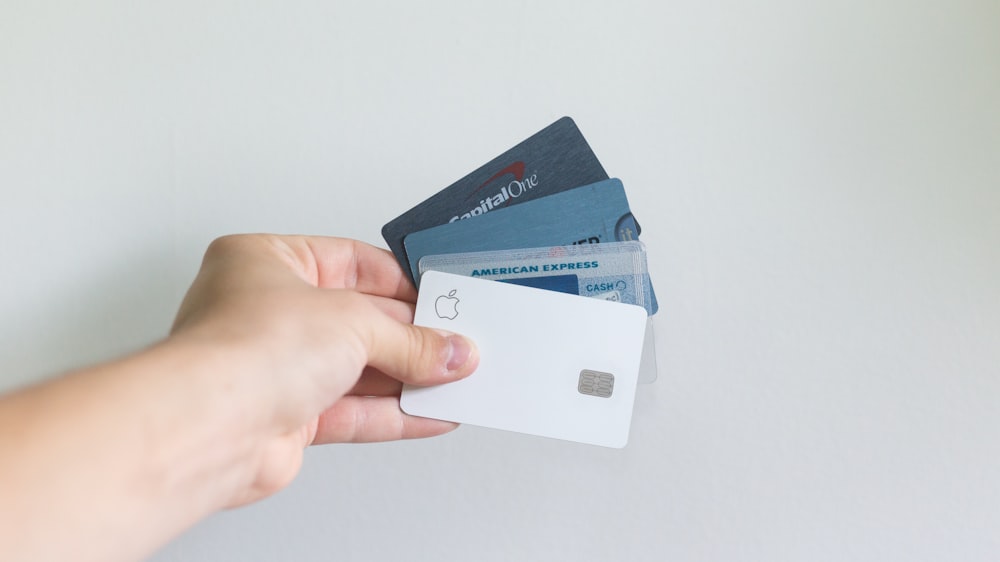Call Us On: +1 669-225-2017
-
0
Loading cart contents...

Image Source: Unsplash
Image Source: MLive
The legalization of recreational marijuana in several states, including Michigan, has brought about numerous challenges for dispensaries, particularly in the realm of financial transactions. Due to the federal illegality of marijuana, many dispensaries are unable to accept credit cards or work with large banks, leaving them to rely on regional credit unions or cash-only transactions. However, even these alternatives have drawbacks, such as limited access to banking services and increased vulnerability to theft. In this article, we will delve into the complex financial landscape surrounding marijuana transactions, explore the implications for dispensaries, and discuss potential solutions to address these challenges.
Mastercard, a leading global payment technology company, recently made a significant move that exacerbates the challenges faced by dispensaries. The company instructed financial institutions to terminate debit card PIN transactions related to marijuana purchases. Although some buyers had been using this workaround to bypass restrictions on credit card transactions, Mastercard’s decision reinforces the federal illegality of cannabis sales and the resulting limitations on financial services for the marijuana industry.
As a result, many dispensaries are forced to rely on regional credit unions or cash-only transactions, which present various obstacles. Jevin Weyenberg, the owner of Lake Effect and Doja dispensaries in Southwest Michigan, highlights the inconvenience and inefficiency of cash transactions compared to credit card payments. Beyond the time-consuming nature of cash transactions, the lack of access to banking services poses a significant hardship for the nearly $2 billion recreational marijuana industry in Michigan. Furthermore, the reliance on cash leaves dispensaries vulnerable to theft, a concern that is particularly pertinent in an oversaturated market where businesses are already struggling to stay afloat.
Recognizing the need to address the banking pitfalls faced by the cannabis industry, federal lawmakers have introduced the Secure and Fair Enforcement (SAFE) Banking Act. This bill aims to protect banks from punishment for providing services to legitimate marijuana businesses. If passed, it would provide a much-needed solution to normalize the financial landscape for dispensaries, allowing them to operate more efficiently and securely.
Jevin Weyenberg emphasizes the potential benefits of the SAFE Banking Act, as it would alleviate the burden on customers who constantly rely on ATM machines to withdraw cash for their purchases. This level of inconvenience is not typically experienced in other industries, such as alcohol or firearms, where credit card transactions are readily accepted. Additionally, the legislation would enhance the overall security of the cannabis industry, reducing the risk of theft and improving public safety.
Michigan Attorney General Dana Nessel also supports the SAFE Banking Act, emphasizing that without access to traditional banking, the cannabis industry becomes an attractive target for criminals. She highlights the importance of fair access to banking institutions for the security of businesses, employees, and public safety. While the SAFE Banking Act has been introduced multiple times, its passage would undoubtedly have a profound impact on the financial landscape for dispensaries.
While the future of the financial landscape for dispensaries remains uncertain, there are steps that businesses can take to navigate these challenges and ensure their stability and growth. One possible solution is the establishment of partnerships with regional credit unions that are willing to work with marijuana businesses. Although this approach may not provide the same level of convenience as credit card transactions, it offers an alternative to cash-only transactions and reduces the risk associated with storing large amounts of cash on-site.
Another option is the exploration of digital payment solutions specifically designed for the cannabis industry. These innovative platforms aim to bridge the gap between dispensaries and financial institutions by providing secure and compliant payment processing services. By leveraging technology, dispensaries can streamline their transactions and reduce their reliance on cash, enhancing both efficiency and security.
Furthermore, the ongoing efforts of advocacy groups and lawmakers to pass legislation like the SAFE Banking Act should not be overlooked. Grassroots movements and lobbying can play a crucial role in raising awareness about the challenges faced by the cannabis industry and garnering support for comprehensive banking reform. buy weed with credit card
The financial landscape for dispensaries in the legalized marijuana industry is complex and challenging. The federal illegality of cannabis sales has resulted in limited access to banking services, forcing many businesses to rely on cash-only transactions or regional credit unions. Mastercard’s recent decision to terminate debit card PIN transactions related to marijuana purchases further underscores these limitations. However, there is hope on the horizon with the introduction of the SAFE Banking Act, which aims to protect banks providing services to legitimate marijuana businesses. By addressing the banking pitfalls faced by the cannabis industry, this legislation would enhance the overall stability, efficiency, and security of dispensaries. In the meantime, businesses can explore alternative financial solutions and advocate for comprehensive banking reform.